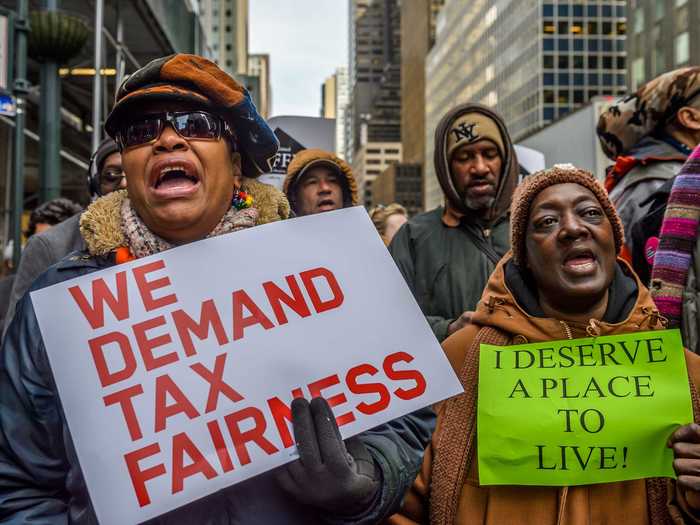Last but by not least, US foreign policy is going to move in Bernie's direction no matter who ends up president in 2021. Foreign policy was never Sanders' primary concern, but he called for an end to endless wars, the need for greater congressional involvement in the conduct of foreign policy (and especially decisions for war), a halt in our support for the Saudi intervention in Yemen, a more sensible defense budget, the resumption of the Iranian nuclear deal, and "support for democracy, human rights, diplomacy and peace, and economic fairness."
At the most general level, COVID-19 will inevitably restrain US ambitions abroad. Compared to the need to protect American lives and rebuild the US economy, determining who gets to govern in Kabul or Damascus or Tripoli will matter even less to Americans after 2020 than it does today.
Spending hundreds of billions of dollars every year to safeguard the country against distant, weakly armed terrorists or third-rate rogue states, or to continue our ill-fated efforts to "spread democracy" with military force, is going to be a much harder sell: More masks, ventilators, and a well-funded public health infrastructure would have kept us a lot safer than a few more F-35s.
Similarly, hyper-globalization was already on probation before the pandemic hit; it's a safe bet that the United States (and others) will be wary of returning to the same levels of interconnectedness and supply-chain vulnerability that were present before the crisis hit.
Autarky is not an option and globalization will not end, but a more cautious approach to trade, investment, and population movement is inevitable. Sounds a lot like Bernie to me.
To be sure, some elements of Bernie's foreign policy are unlikely to be implemented if Trump retains power. Trump won't start prioritizing human rights or democracy in a second term, and he won't embrace Bernie's views on Palestinian rights or climate change. But Secretary of State Mike Pompeo is likely to leave office after November (to lay the groundwork for a presidential bid in 2024), and the departure of Mr. "Maximum Pressure" would open the door to a new arrangement with Iran at a moment when Iran may well be receptive.
Moving toward Sanders' position on Iran would allow Trump to claim a rare foreign policy victory. And I wouldn't rule out Trump turning on his former pal Mohammed bin Salman of Saudi Arabia, who did his US patron no favors by decimating the US fracking industry. Bernie would no doubt agree.
Should Biden win in November, a resurgent Democratic foreign policy elite will undoubtedly try to turn the clock back and pretend that Trump's tenure was just a four-year national nightmare. Expect to see a renewed commitment to those old foreign policy institutions (NATO, multilateralism, the G7 and G20) and lots of talk about the need for US "leadership."
Bernie's call to emphasize climate change, democracy and human rights will resonate well with this agenda, and his idealism will be consistent with the bipartisan desire to confront China and Russia on a number of fronts. A Biden administration will be softer on America's Middle East clients than Bernie would have been, but US support for these increasingly dubious friends is likely to be more limited and conditional in the future than it is been in the past.
"Maximum pressure" against Iran will be abandoned, no matter how loudly the Saudis, Israelis, or their lobbyists in DC keep calling for war. Biden won't be Bernie, but any attempt to return to "Liberal Hegemony Lite" will be more rhetorical than real.
I'm hardly the first person to conclude that Bernie is the real victor in 2020, a triumph due as much to the global pandemic as it is to Bernie's charisma, organizing ability, or political acumen.
Nonetheless, timing counts for a lot in politics, and some key parts of Sanders' message were perfectly aligned with this unexpected and unfortunate turn of events. His name won't be on the ballot in November, but he'll still be the biggest winner.


